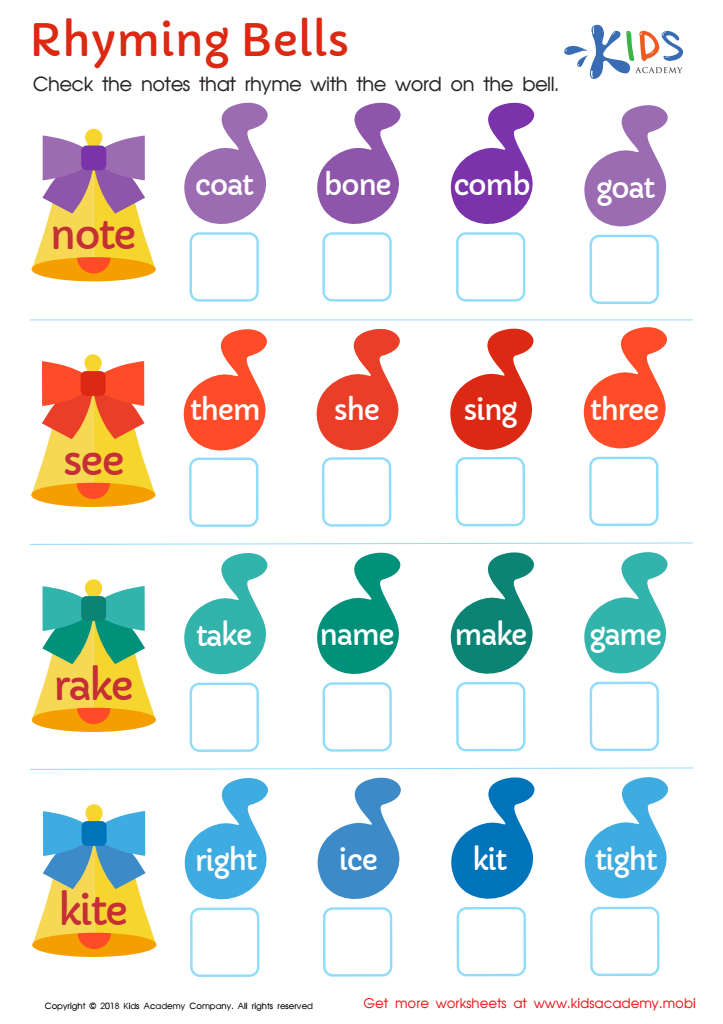Rhyming skills development Normal Rhyming Worksheets for Ages 4-9
4 filtered results
-
From - To
Enhance your child's rhyming skills with our engaging and age-appropriate rhyming worksheets, designed specifically for children ages 4-9. These printable resources focus on developing phonemic awareness through fun activities that encourage creativity and language exploration. Each worksheet features delightful illustrations and prompts that make learning to rhyme enjoyable and effective. Perfect for homeschooling or classroom use, these worksheets provide a structured approach to help young learners identify and produce rhyming words, strengthening their reading and speaking abilities. Discover the joy of learning with our Normal Rhyming Worksheets, and watch your child's confidence grow as they master this essential literacy skill!


Rhyming Words Rhyming Worksheet


Rhyming Bells Worksheet


First Words: Picture Rhymes Worksheet
Rhyming skills development is crucial for children ages 4-9 as it significantly impacts their overall literacy, language development, and cognitive skills. Rhyming helps children recognize phonetic patterns, which are foundational for decoding words as they begin to read. When parents and teachers encourage rhyming through songs, poems, and playful activities, they help children become aware of sounds and syllables, which enhances their phonemic awareness.
Additionally, rhyming can strengthen vocabulary and comprehension skills. It exposes children to new words and contexts in a fun and engaging manner, making it easier for them to retain information. By recognizing and creating rhymes, children also develop critical thinking skills and creativity, as they explore different ways to articulate ideas.
Moreover, rhyming fosters social interaction. Group activities featuring rhymes or rhyming games create opportunities for collaborative play, reinforcing language skills in a communal setting. This support can greatly enhance children's self-esteem and encourage a lifelong love for reading and language.
In essence, nurturing rhyming skills is particularly pivotal at this developmental stage to lay a strong foundation for reading proficiency, creative expression, and effective communication. Parents and teachers play a vital role in guiding this essential aspect of early literacy.
 Assign to My Students
Assign to My Students













